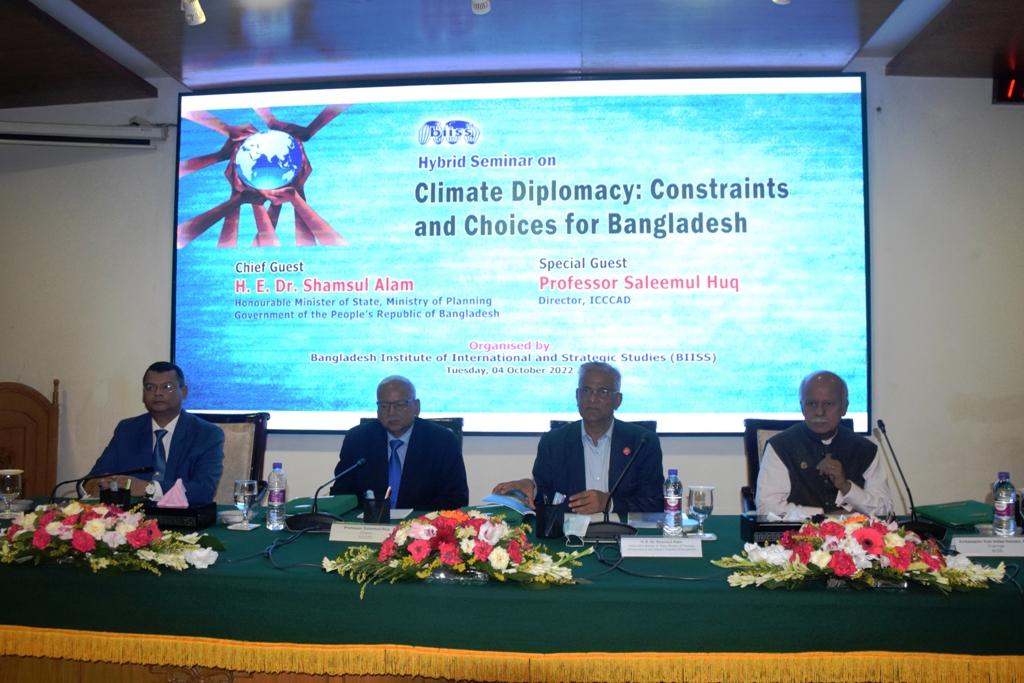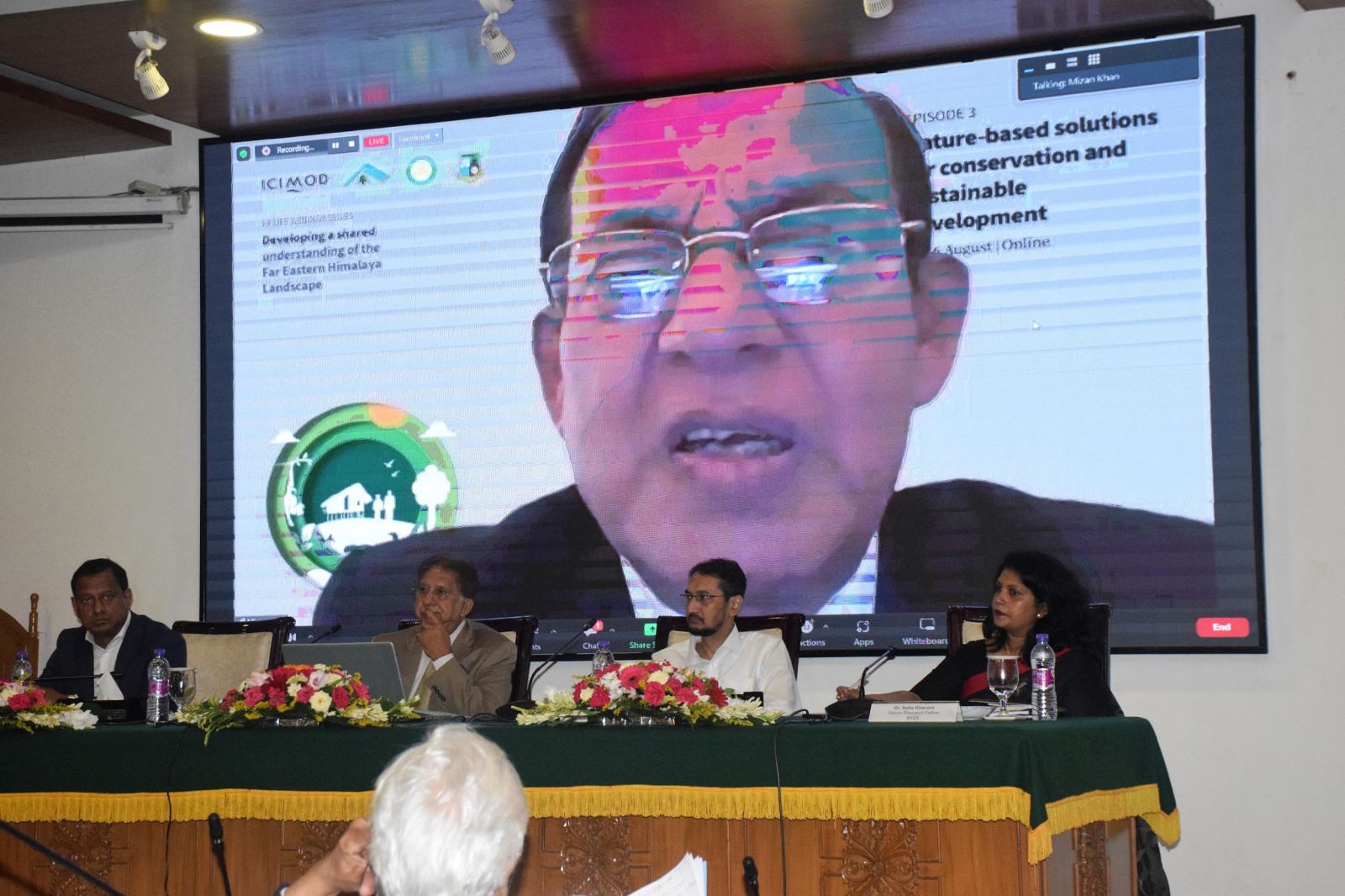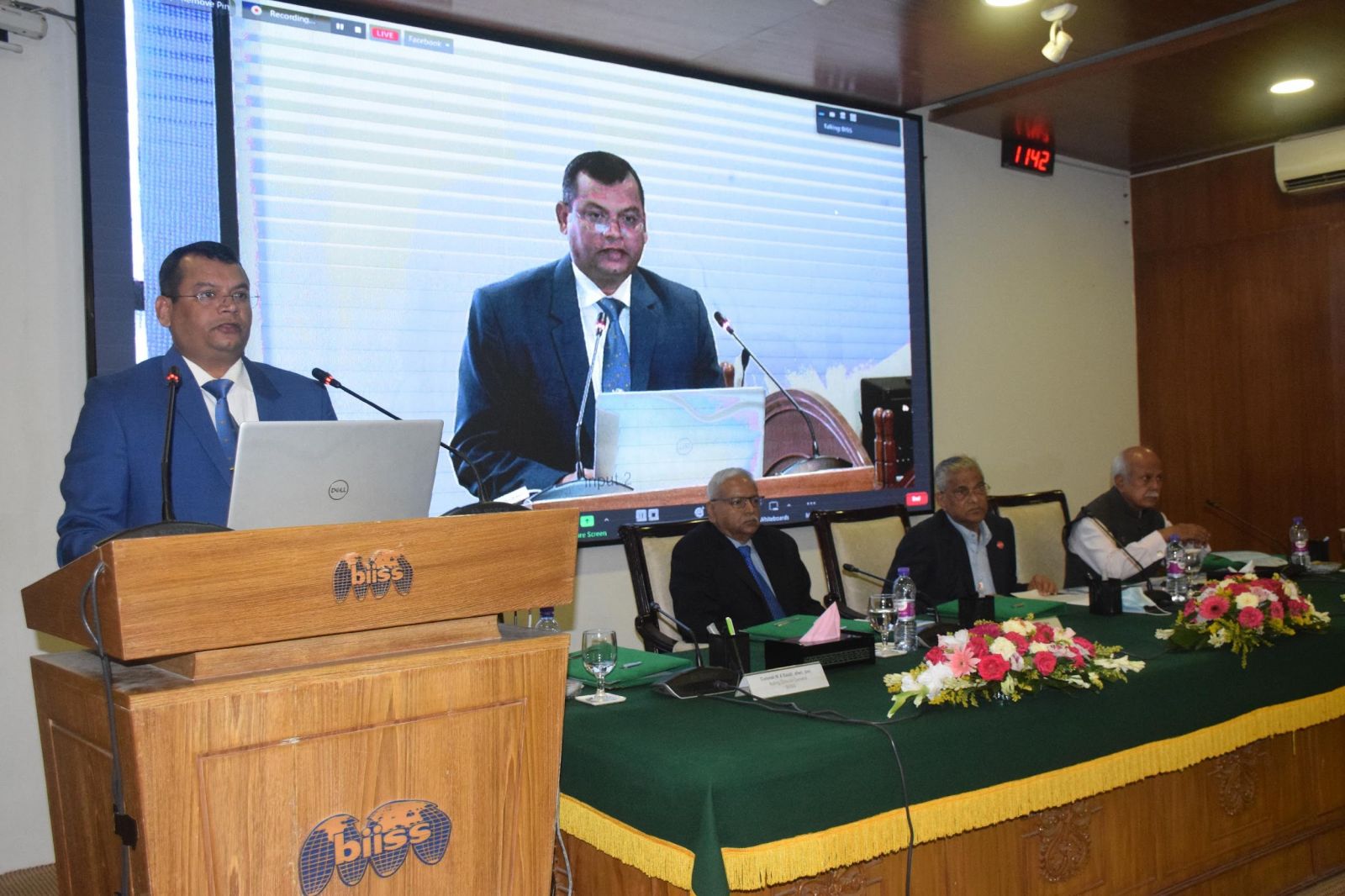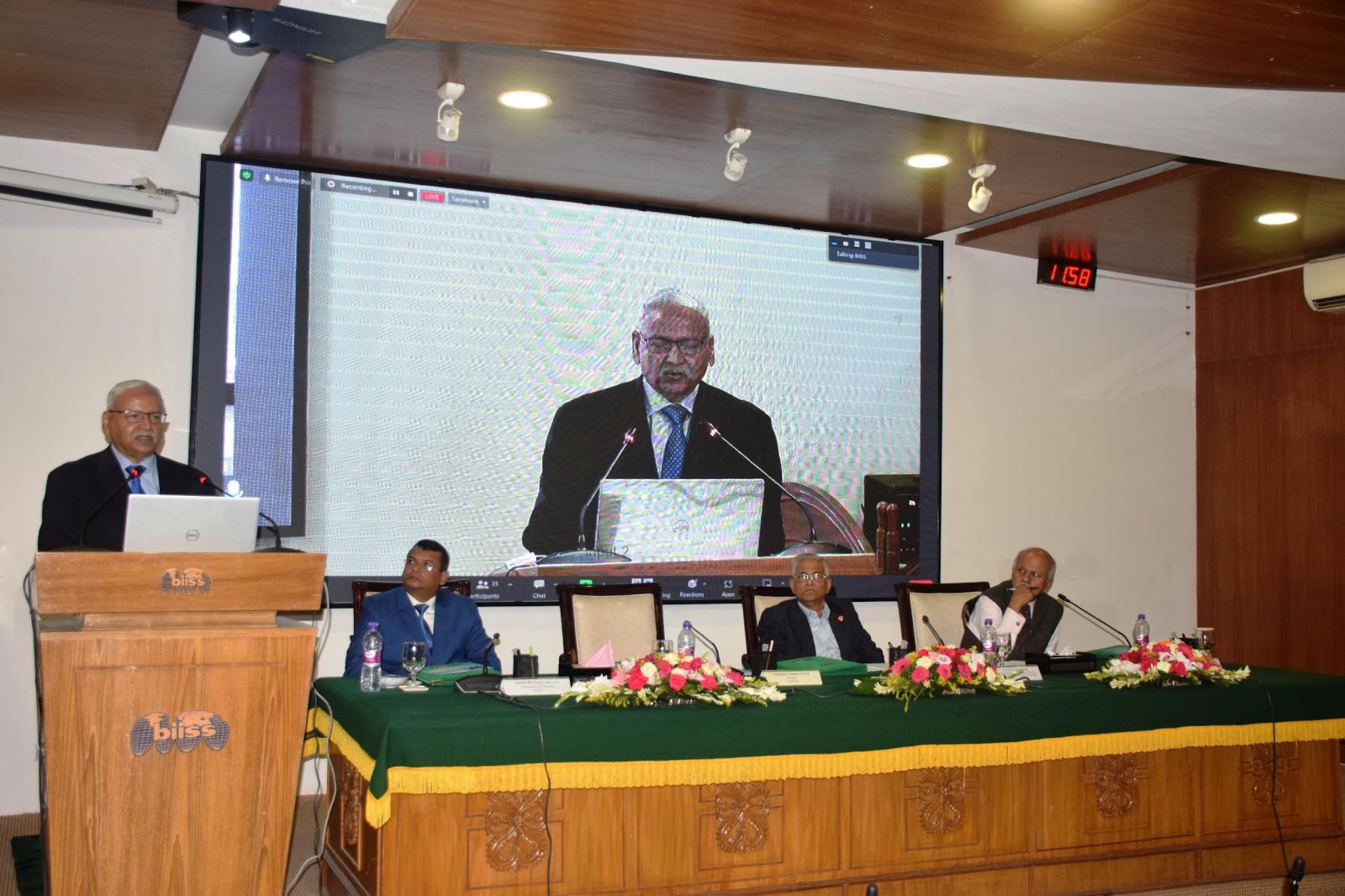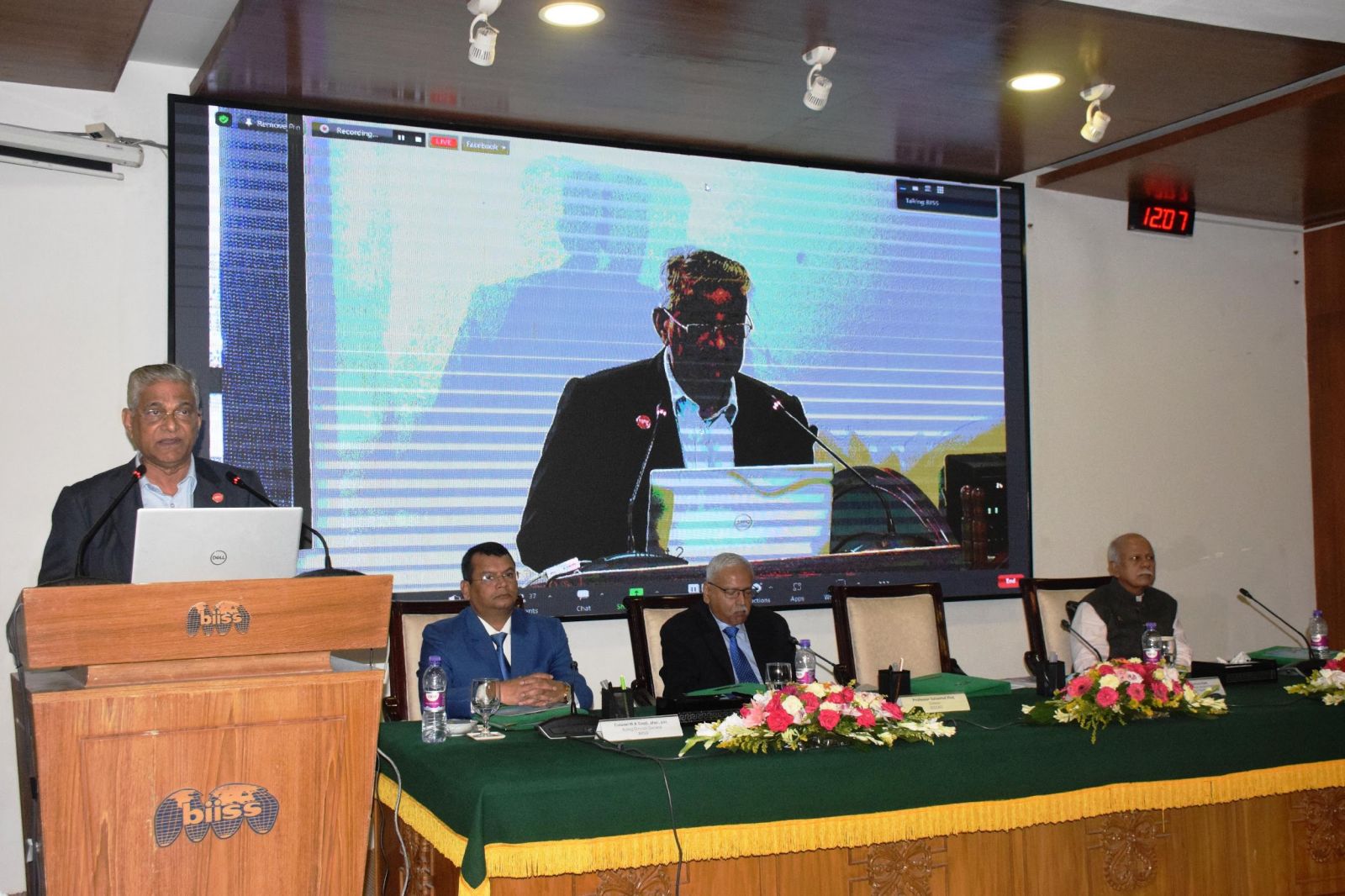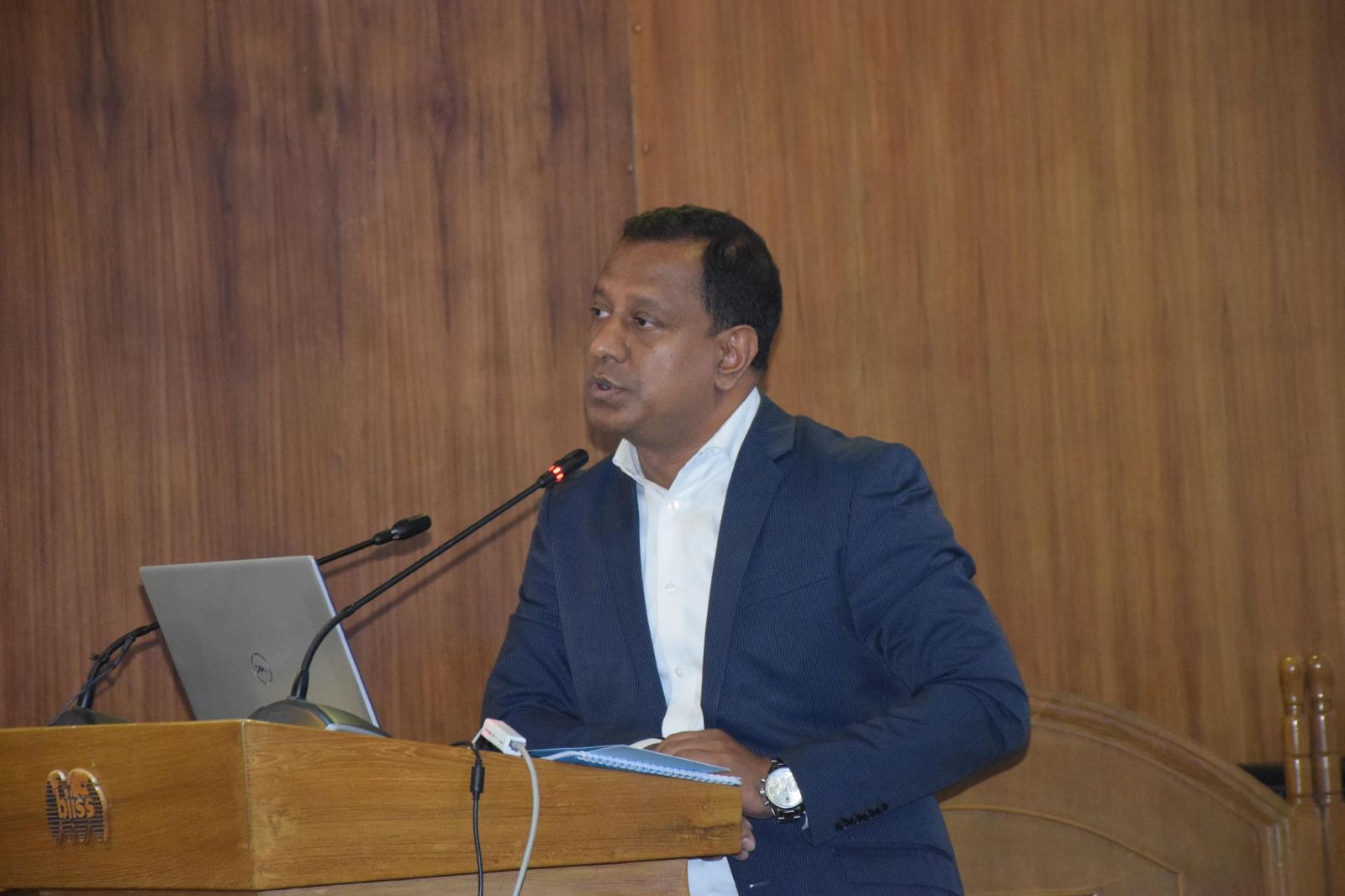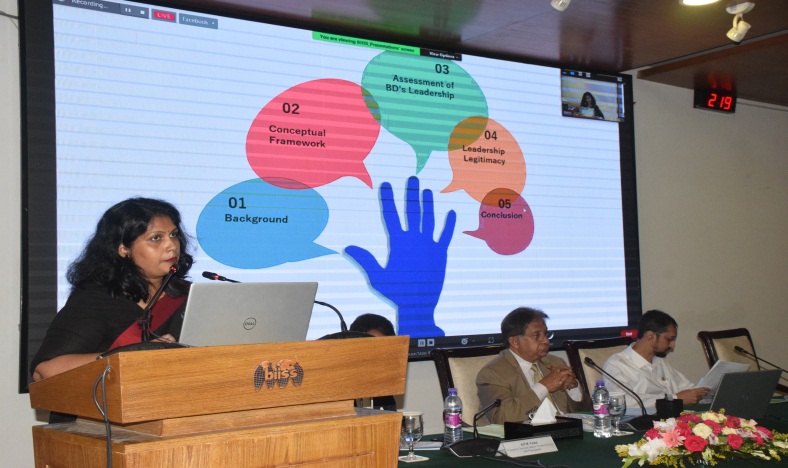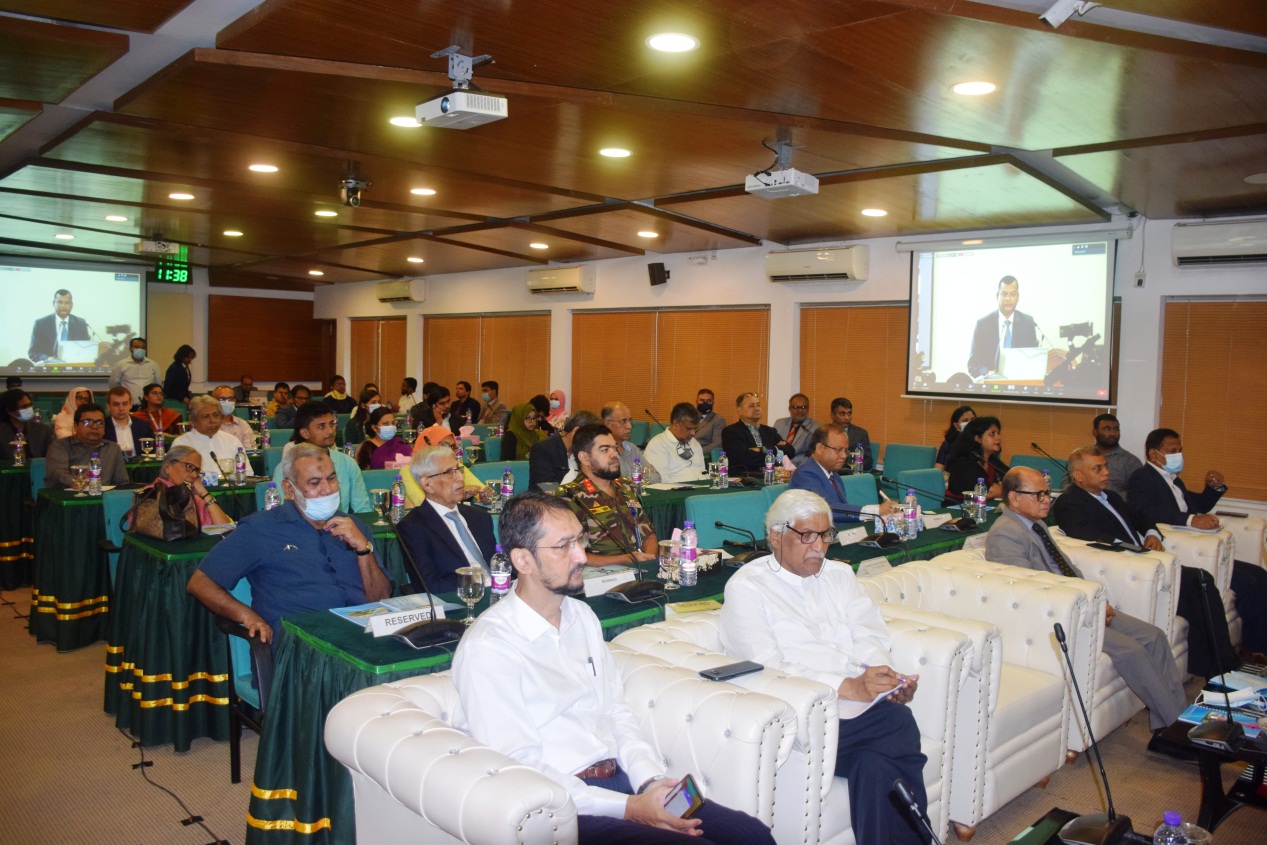Hybrid Seminar on Climate Diplomacy: Constraints and Choices for Bangladesh on 04 October 2022
DATE: 2022-10-04
Bangladesh Institute of International and Strategic Studies (BIISS) organised a hybrid seminar titled “Climate Diplomacy: Constraints and Choices for Bangladesh”, on 04 October 2022, at the BIISS auditorium. The seminar was divided into two sessions. H.E. Dr. Shamsul Alam, Honourable Minister of State, Ministry of Planning, Government of the People’s Republic of Bangladesh, graced the Seminar as Chief Guest. Professor Saleemul Huq, Director, International Centre for Climate Change and Development (ICCCAD), was the Special Guest. Ambassador Kazi Imtiaz Ahmed, PAA, Chairman, BIISS, chaired the inaugural session while Colonel M A Saadi, afwc, psc, Acting Director General of BIISS, delivered the Welcome Address. The Working Session was chaired by Ambassador Shamsher M. Chowdhury, BB, Former Foreign Secretary of Bangladesh. Four papers were presented in the Working Session. Professor Mizan R. Khan, Deputy Director, ICCCAD, presented on Financing for Loss and Damage: Concerns for Bangladesh; Arif M. Faisal, Programme Specialist (Nature, Climate & Energy), UNDP Bangladesh, presented on The Role of International Organisations in Climate Diplomacy; Mirza Shawkat Ali, Director, Climate Change and International Convention, Department of Environment, Government of the People’s Republic of Bangladesh, presented on Major Outcomes of COP 26 and Issues of COP 27, and, Dr. Sufia Khanom, Senior Research Fellow, BIISS, presented on Bangladesh’s Presidency in Climate Vulnerable Forum (CVF): An Assessment of Climate Leadership in Perspective. The presentations were followed by an open discussion.
In his welcome address, Colonel M A Saadi stressed on the importance of climate change as it emerged as an existential threat to humankind. Bangladesh is one of the most vulnerable countries regarding climate change. He also spoke on various measures the country undertook to tackle this threat.
Professor Saleemul Huq divided his speech into past, present and future narratives on climate change. He spoke at length on Bangladesh’s initiatives to deal with climate change, the diverse challenges the country is facing, the importance of climate diplomacy and the role of diplomats in this regard.
In his speech, the Chief Guest, H.E. Dr. Shamsul Alam spoke about the gravity of the threats Bangladesh faces from climate change. He lauded Prime Minister Sheikh Hasina’s visionary leadership in shifting the country from vulnerable to resilient. In this regard, he mentioned various measures Bangladesh is taking. Bangladesh’s proactive role in different international fora was also highlighted in his speech.
Professor Mizan R. Khan in his presentation discussed the loss and challenge concept concerning the UNFCCC. This principle was also included in the Paris Climate Agreement. He mentioned about the low adaptation finance which has been impeding climate justice.
Mr. Arif M. Faisal said climate change impacts and vulnerability were critical development concerns for Bangladesh; climate negotiations could be an effective platform for branding Bangladesh in a global forum. As human and national security issues were getting intertwined for climate change, the country should consider appointing a personal “Special Climate Change Envoy/Adviser”.
Mirza Shawkat Ali, in his presentation, shared some information on the possible impacts of Bangladesh’s LDC graduation. The country had not been considerably successful in securing funds from different platforms in relation to climate change. He also shed light on major outcomes of COP 26, important clauses of various global arrangements on climate change, previous COP summits and the upcoming COP 27, long-term climate finance, etc.
Dr. Sufia Khanom, spoke on the evolution of global bodies that address climate vulnerability, relevant conceptual framework, Bangladesh’s leadership role in these organisations, climate change negotiations pursued by the country, and challenges faced in these regards.
An interactive Open Session took place after the presentations. Senior officials from different ministries, ambassadors, high commissioners, former diplomats, senior military officials, media, academia, researchers, teachers and students, and representatives from diverse international organisations participated in the seminar and enriched it by presenting their valuable opinions, comments, suggestions, and observations.

